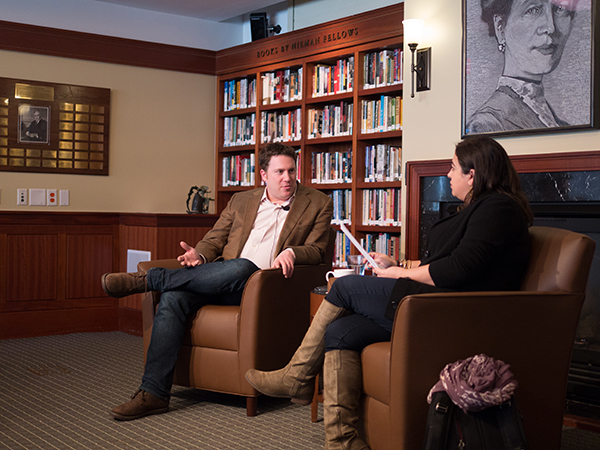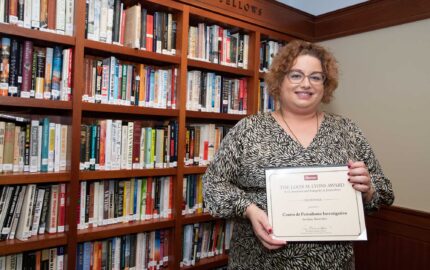Ben Smith became editor in chief of BuzzFeed in 2011 when the website known for its listicles and cat photos got into the business of breaking news. Smith, an early hire at Politico, immediately built a reporting staff. BuzzFeed’s mix of news and frivolity attracts more than 130 million visitors a month. During a talk at the Nieman Foundation, Smith discussed social media as a news distribution channel, the importance of editors, the evolution of beats, the new hegemony of the article as a unit of media, and the value of brevity and high-energy reporters. Among the points he made:
1. “There’s clearly been this shift in power essentially from news organizations to reporters.”
2. “You can’t trick people into sharing things. They have to really like it and be proud to share it.”
3. “If you’re in the social mix, what you’re getting is an individual story that has punched through because it’s really good. It doesn’t really matter if you’ve heard of the writer before.”
4. “My actual day-to-day view is that every single piece of content is competing with every single other piece of content all the time.”
5. One challenge is “figuring out what replaces the wire story as the way breaking news gets communicated because no one reads wire stories, no one shares wire stories.”
6. “I think actually when you’re recruiting young reporters the thing people really want is an editor. That’s a huge luxury. And so we have very strong editors and that’s a big part of how we operate. It’s definitely not like ‘throw it out there and see if it sticks.'”
7. “Most people–except sociopaths–care about cute animals and most people also want to know what’s going on in the world.”
8. “Each story has a potential audience and if it’s a story about Ukraine or a story about lobbying in D.C., there are maybe tens of thousands or hundreds of thousands of people who might, in an ideal world, share and read that story. If it’s a feature about rebuilding a house in Detroit, there may be millions. If it’s a list of cute animals or something that’s about a universal human experience, there may be tens of millions. We think: What’s the possible audience for this piece and let’s try to hit that whole audience.”
9. “One of the advantages of starting from scratch is that you can rethink beat structures. Gay rights is this huge story of the last 10 years, but it’s covered as a B-list beat at a lot of publications just because it always has been. For us, it’s very much a frontline beat and we’re able to hire the best reporters who really own that beat.”
10. “Most stories on the Web are too long.”
11. “Raw aggression—that’s the thing I look for in reporters.”
12. “Having a background in TV doesn’t tell you that much about what people are going to want to watch and share online.”



